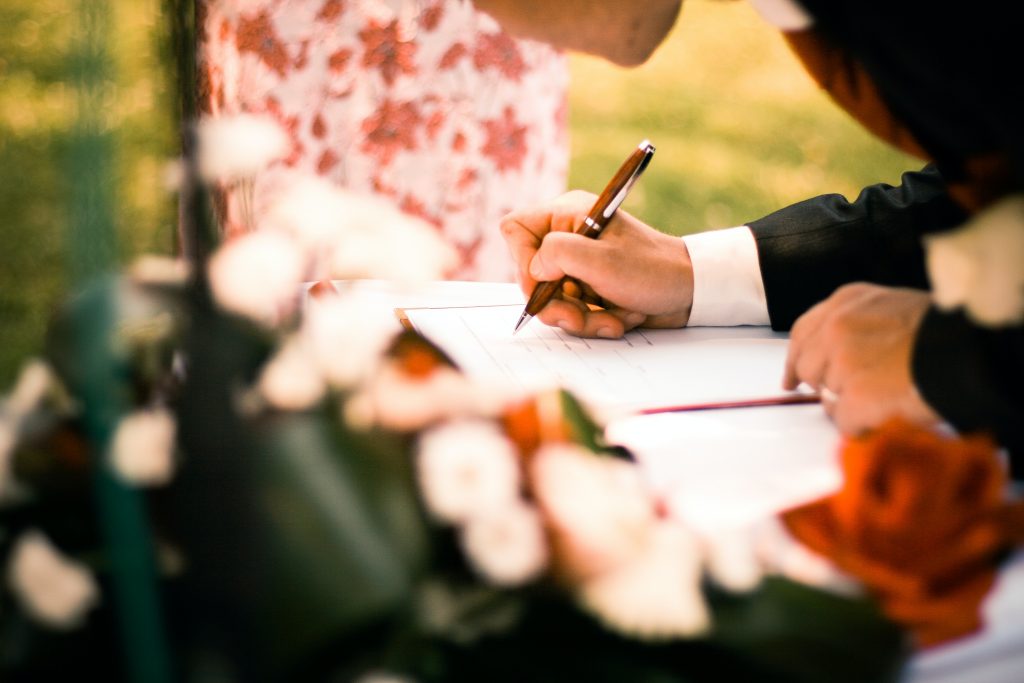As the COVID-19 pandemic continues, industries have had to come up with more creative ways to complete their services in safer way.
To reduce physical contact, the Saudi Arabian government has begun allowing e-marriage contracts. This allows couples to receive their marriage contracts without having to be physically present.
Couples simply need to provide all the relevant data and information and conduct a medical examination before the date of the marriage session. A marriage officer will verify all the data and supply the final contract that can be signed electronically and printed from the online portal.
This service helps in documenting marriage data and finalizing marriage contracts easily and conveniently.
In similar fashion, marriage by proxy has been around for centuries and has allowed people separated by borders to tie the knot without both being physically present. An agent acts on behalf of one of the parties during the solemnization of the marriage.
Marriage by proxy was very common among nobility. Marie Antoinette married Louis-Auguste by proxy in 1770 and French emperor Napoleon married Archduchess Marie Louise by proxy in 1810. This service became even more popular in the early 1900s in America during the war efforts.
Marriage by proxy is most commonly used in cases where one partner is enrolled in military service, imprisoned or due to travel restrictions.
Importantly, this marriage is not legally recognised by most countries as common law requires both parties to be present.
Feature image: Pexels

